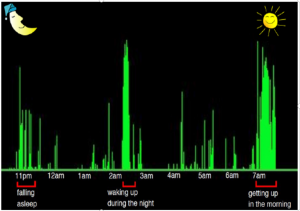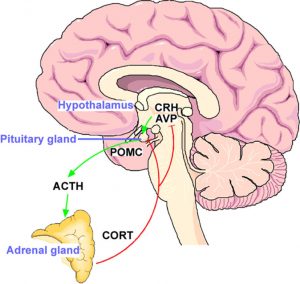Adolescents experience discrimination and unfair treatment due to their ethnicity, gender, age, and physical appearance just like adults. A growing body of research has associated these experiences with poorer psychological and even physical health during the teenage years. Our recent work has pointed to links with disrupted sleep and higher circulating levels of cortisol, an indicator of chronic activation of one of the key stress-response systems.
Discrimination and Disrupted Sleep

In a paper recently published in the Journal of Youth and Adolescence, we report findings that discrimination is associated with multiple indicators of poorer sleep, including wrist actigraphy that estimates sleep through movement. Adolescents who report unfair treatment due to their ethnicity or other characteristics — receiving less respect, getting poor service, being followed in stores — slept fewer hours at night, showed more variability in their sleep, and reported poorer sleep quality. The associations with sleep quality appeared to be mediated by greater feelings of stress and loneliness by those who reported more frequent discrimination on a daily basis.
Discrimination is associated with multiple indicators of poorer sleep
Discrimination and Cortisol

Cortisol is an output of the hypothalamic-pituitary-adrenal (HPA) axis, one of the key stress response systems that is particularly sensitive to the stress of social evaluation and threats to social status. In a second paper, published in Hormones and Behavior, we report that youth who report more discrimination evidence higher levels of cortisol across the day, suggesting more chronically-elevated activation of the HPA axis. Interestingly, these links existed regardless of adolescents’ attribution for the unfair treatment — race, gender, or age — and among youth of several different ethnic backgrounds.
Youth who report more discrimination evidence higher levels of cortisol across the day
Conclusion
Our work joins emerging research from other labs to suggest discrimination is a very real experience for adolescents that can have a negative impact upon their development. Although it is important to study ways to help youth cope with discrimination, it is equally imperative to prevent adolescents from experiencing such unfair treatment due to their race, ethnicity, gender, and age in the first place.

